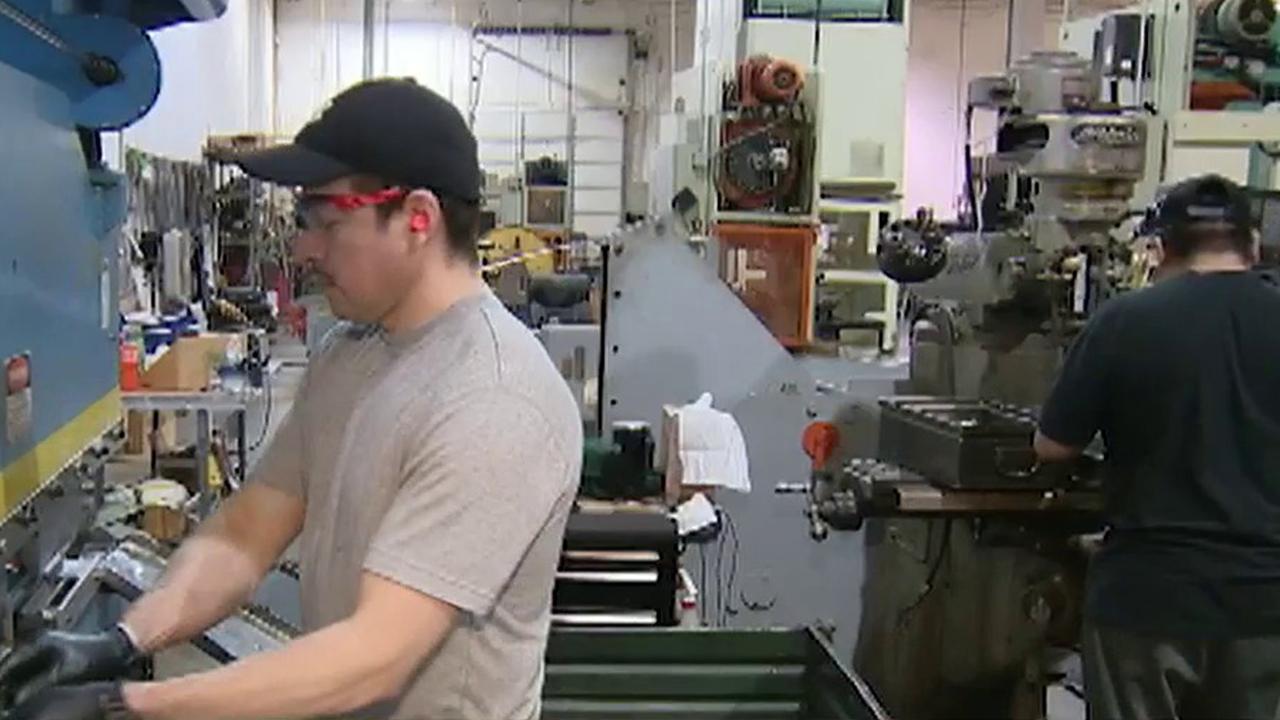'Severe' blue-collar worker shortage to worsen as baby boomers retire
Young people leaning toward white-collar jobs will fail to fill positions vacated by retiring baby boomers, report warns
Blue-collar industries like manufacturing and construction are facing a "severe" worker shortage that will only get worse as young people fail to fill positions vacated by retiring baby boomers.
That's according to an 85-page report by the nonprofit business research group Conference Board, which blamed a "perfect storm" of longterm trends.
Young people, the authors say, are turning to college for white-collar job opportunities rather than trade school or apprenticeship opportunities in agriculture, mining, manufacturing, construction and transportation.
At the same time, many baby boomers, who make up much of the blue-collar labor market, have reached retirement or are on their way to retirement.
"While a lot has been written about the overall tightness of the labor market, much less has been written about severe labor shortages of blue-collar and manual services workers --- the exact opposite of the trends in recent decades," Gad Levanon, vice president of labor markets at The Conference Board, told FOX Business.

A worker prepares a piece of Cat construction equipment made by Caterpillar to be lifted off a trailer at the Port of Tacoma in Tacoma, Wash. (AP Photo/Ted S. Warren)
"This shortage is no coincidence but a result of several long-run demographic and educational trends that converge in a perfect storm like fashion, and that could make these shortages even more severe in the coming decades," Levanon said. "These shortages are a much more immediate and important problem than the risk of massive unemployment due to robots taking our jobs at some point in the future."
INCOME INEQUALITY DECLINING UNDER TRUMP, SAYS LABOR SECRETARY
The labor force participation rates for men ages 25 to 34 have seen a significant downturn since 1995, shows the study, which surveyed more than 200 human resources executives.
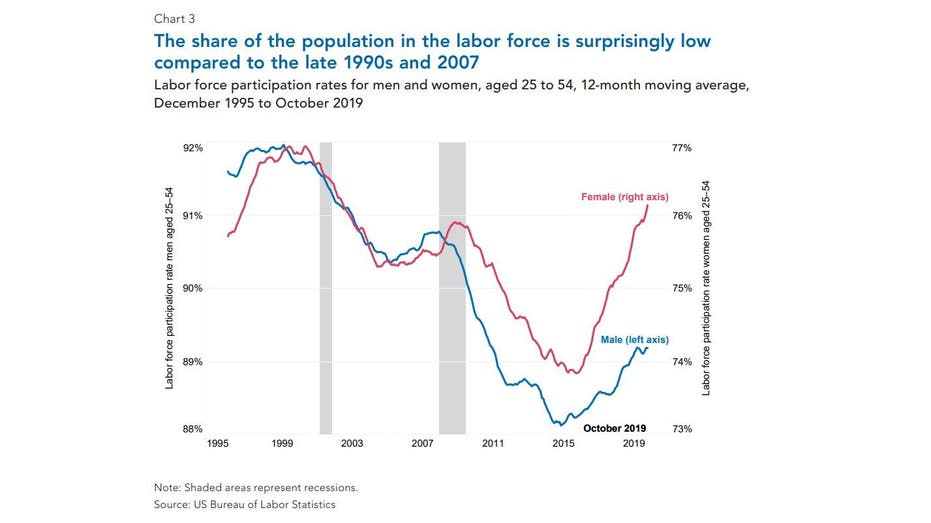
Women in the labor force vs. men in the labor force. (The Conference Board)
Demand for blue-collar workers continues to grow, in part because of a slowdown in labor productivity, according to the Conference Board.
The number of U.S. citizens who qualify as disabled between the working ages of 25 and 64 has also reached a record high. The heaviest concentrations of disability appear along the Rust Belt and the industrial South, the study found.
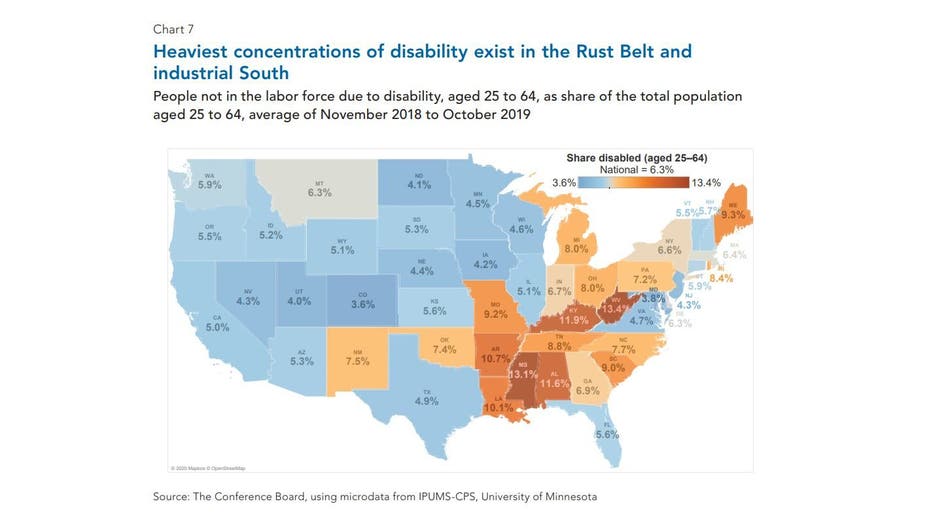
Disability numbers. (The Conference Board)
Additionally, young men are leaving the blue-collar workforce for white-collar opportunities after college. As a result, the number of blue-collar workers in the U.S. directly correlates with the number of people who hold a bachelor's degree.
The participation of 16-24-year-old men who work blue-collar jobs that require little experience or education has dropped by about 10 percent since 1995, the study showed.
This is seen as a positive trend by societal standards because it means more young people are getting a higher education, despite the fact that blue-collar jobs often hold the promise of high wages and steady work due to increasing demand. Nearly a quarter of young men without a college degree, however, still live at home with their parents, the study noted.
MIKE ROWE: PARENTS PUSH COLLEGE IN FEAR OF 'SCREWING OUR KIDS UP'
"I think there is some stigma associated with manual labor," Levanon said. "The American dream and the entire education system is geared towards completing a four-year college. Also, the significant improvement in the labor market outlook for blue-collar workers is not common knowledge yet. I would argue that you still hear and read more about how robots will steal many of our jobs than you hear about labor shortages."
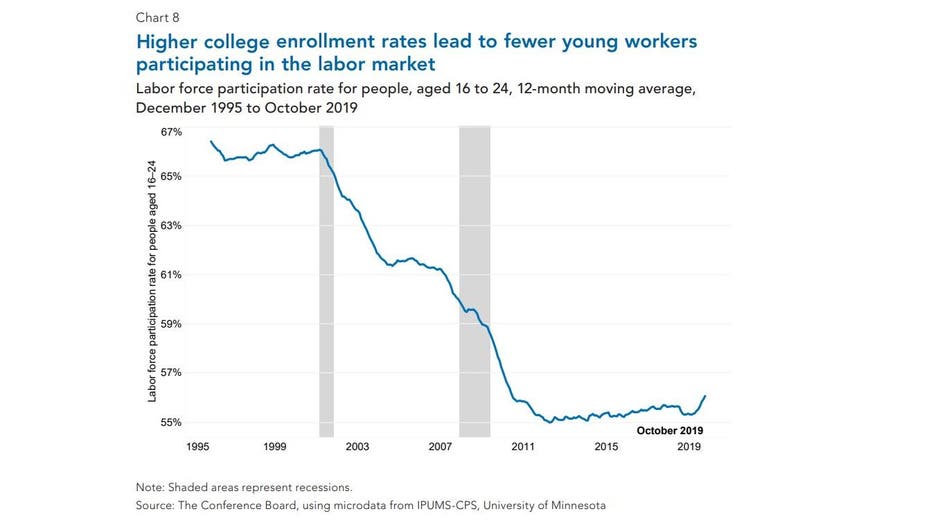
Correlation between more education and drop in labor. (The Conference Board)
As men leave blue-collar industries, more and more women aged 25 to 54 are joining the labor force --- but not enough to make a significant difference in these industries, the study found.
GET FOX BUSINESS ON THE GO BY CLICKING HERE
Potentially increasing costs and quality of blue-collar services is now more of a concern than it was in the past because employers are more willing to hire candidates that are not qualified for the job or have been out of the labor market for years, according to the study.
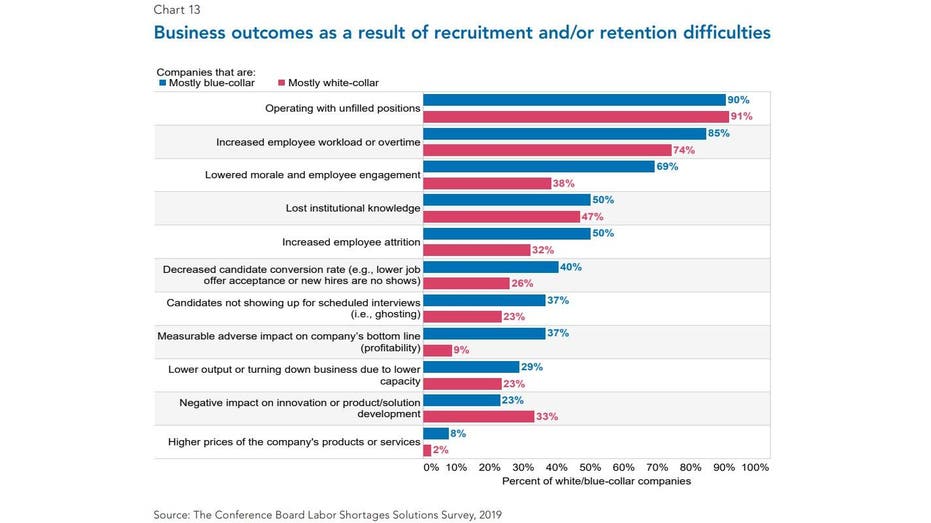
Business outcomes. (The Conference Board)
"Without a concerted effort by companies and governments, the nation’s overall standard of living will decline, along with profits in blue-collar-heavy industries such as transportation, warehousing and manufacturing," The Conference Board said in a press release Tuesday.




















